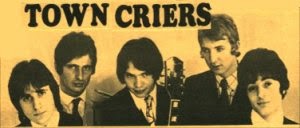Before Dragon became the huge success they were in Australia, they recorded two albums in New Zealand that have now become very sort after.
Dragon originally formed in Auckland, New Zealand, in January 1972, with a line-up that featured Todd Hunter on bass guitar, guitarist Ray Goodwin, drummer Neil Reynolds and singer/pianist Graeme Collins. All had been in various short-lived bands in Auckland. Collins is credited with using I Ching to provide the name Dragon. Their first major gig was an appearance at The Great Ngaruawahia Music Festival in early January 1973. By 1974 several personnel changes had occurred, with Todd Hunter's younger brother Marc Hunter joining on vocals and Neil Storey on drums. The band recorded two progressive rock albums in their native New Zealand, Universal Radio in 1974 and Scented Gardens for the Blind in 1975, both on Vertigo Records.
Their debut album "Universal Radio", a progressive rock style production, became a bestseller underground , and the group, meanwhile, had earned a reputation for their shocking concert paraphernalia . With a troupe of mimes, transvestites, pregnant strippers, a rotting pig's head on a microphone stand, as well as the musical mayhem and stage equipment - all worked to boost the scandalous reputation of the group.
Tracks:
01. Universal Radio - 8:33
02. Going Slow - 6:14
03. Patina - 11:45
04. Weetbix - 2:55
05. Graves - 6:56
06. Avalanche - 11:08
Bonuses:
07. Black Magic Woman (Unreleased Live) - 6:37
08. X-Ray Creature (Single A-Side of Marc Hunter, 1973) - 3:05
09. Dinghy Days (Single B-Side of Marc Hunter, 1973) - 3:30
Personnel:
Marc Hunter - lead vocals, percussion
Ray Goodwin - lead guitar, vocals
Ivan Thompson - organ, piano, Moog synthesizer
Todd Hunter - bass, flute (09), vocals
Neil Storey - drums
+
Graeme Collins - piano (08)
Herb Mann - lead guitar (09)
Rick Shadwell – producer
Their second album, "Scented Gardens For the Blind", continued the progressive initiatives, but differed with a softer art rock sound.
Tracks:
01. Vermillion Cellars – 3:25
02. La Gash Lagoon – 8:20
03. Sunburst – 8:37
04. Greylynn Candy – 4:58
05. Darkness – 4:45
06. Scented Gardens For The Blind – 7:35
Personnel:
Ray Goodwin - lead guitar, vocals
Marc Hunter - lead vocals, saxophone, percussion
Todd Hunter - bass, vocals
Ivan Thompson – keyboards
Neil Storey – drums

















































